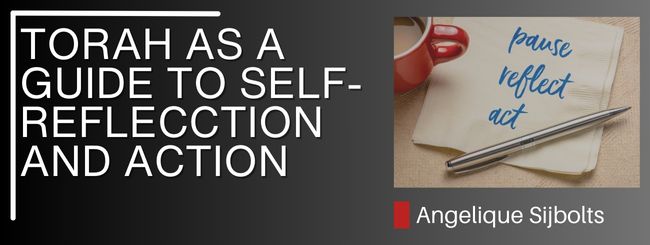בס”ד
Develop yourself to the best of your ability
Psalm 119
Open my eyes, that I may perceive the wonders of Your teaching. | גַּל־עֵינַ֥י וְאַבִּ֑יטָה נִ֜פְלָא֗וֹת מִתּֽוֹרָתֶֽךָ |
Yeshayahu (Isaiah) – Chapter 50:5
My Sovereign GOD opened my ears, And I did not disobey, I did not run away. | אֲדֹנָ֚י ד’ פָּֽתַח־לִ֣י אֹ֔זֶן וְאָֽנֹכִ֖י לֹ֣א מָרִ֑יתִי אָח֖וֹר לֹ֥א נְסוּגֹֽת |
Rashi on Psalms 119:18:1
hidden things from Your Torah Hidden things in it, which are not explained therein.
Ibn Ezra on Isaiah 50:5:1
The L-rd G-d hath opened mine ear, etc. Since the L-rd hath opened mine ear, and revealed His plan to me, I have not objected to be His messenger.
In Psalms 119:18:1, Rashi observes hidden aspects in the Torah, which he does not explicitly elaborate on. From my perspective, this signifies a second stage of learning. Our eyes must first be open to the revealed aspects of the Torah, such as G-d’s commandments and directives. The Torah serves as our guide, teaching us how to adjust our behavior and improve our character traits.
In his commentary on Isaiah 50:5:1, Ibn Ezra describes how G-d opened Isaiah’s ear, enabling him to comprehend G-d’s plan and serve as His messenger. Isaiah heard, understood, and obeyed. This serves as inspiration for all of us to listen to G-d and explore the unique life task He has for each of us. It is crucial that we utilize our abilities to carry out His will.
As we study the Torah and listen to G-d, we realize that we must not only assess our behavior on an intellectual level but also evaluate it emotionally. We need to reflect on the sincerity of our good deeds and examine whether they stem from genuine intentions. For example, giving to charity should arise from a sincere concern for others, not merely to gain self-satisfaction.
Assessing our behavior on both intellectual and emotional levels allows us to gain deeper insights. If our virtuous conduct is driven by incorrect emotions, it is necessary to improve these emotional motivations. In this way, we can learn a holistic approach to the Torah, where we not only intellectually understand but also emotionally connect with G-d’s commandments.
In summary, by carefully examining the Torah and sincerely listening to G-d’s calling, we learn how to evaluate our behavior not only on a superficial level but also on a deeper emotional level. Through this reflection and improvement, we can strive for a life in harmony with G-d’s will and positively influence those around us.
By Angelique Sijbolts
Sources:
Inspired by: Mesillat Yesharim by Moses Hayyim Luzzatto – Introduction and Commentary by Ira. F. Stone, Translation and Orignial Introduction by Mordechai M. Kaplan
Text: Sefaria.org
© Copyright, all rights reserved. If you enjoyed this article, we encourage you to distribute it further.
Our blogs may contain texts/ quotes or references of
Mechon-Mamre.org, Aish.com, Sefaria.org or AskNoah.org
that contain copyrights and which we may use with there permission.
